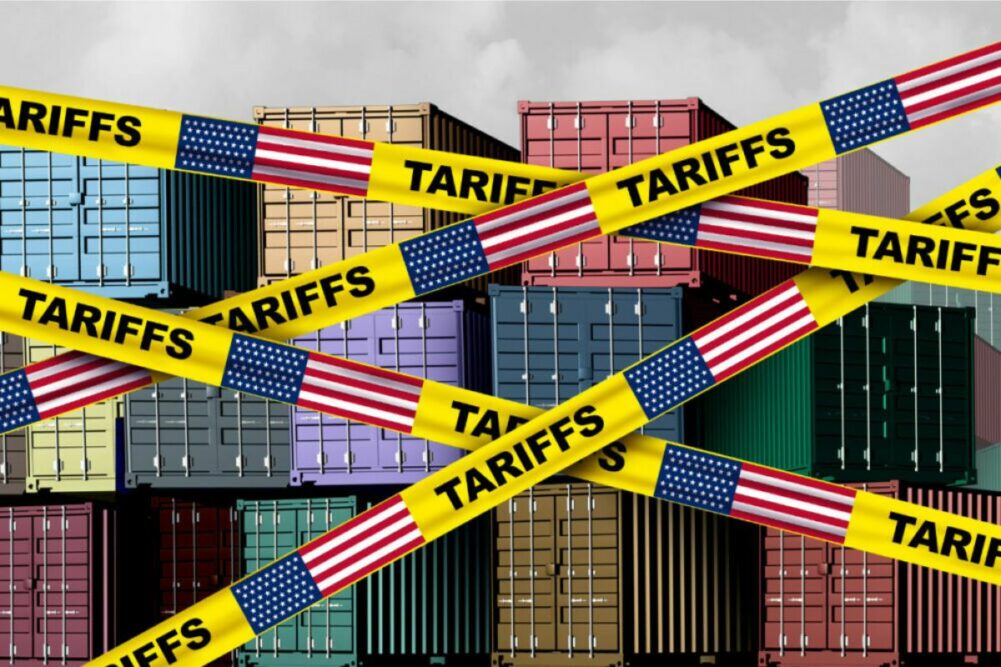
Lawrence Lau, Ralph and Claire Landau Professor of Economics, CUHK
Apr 18, 2025
An estimate of the impact of the tariff war between China and the U.S. on the Chinese GDP in 2025 is presented. The dependence of the Chinese economy on its exports and, in particular, on its exports to the U.S. has been declining significantly over time. At the current tariff rates, a total cessation of bilateral trade is a real possibility. Under the assumption, the reduction in the rate of growth of Chinese GDP may be estimated to be 1.2%, other things being equal. Even though the announced target rate of Chinese growth is around 5%, the weighted average of the target rates of growth of the provincial-level units is 5.26%, indicating room for further increase. In addition, China is expected to launch additional domestic economic stimulus measures in response to the new tariffs, which should result in an additional growth of 0.5%. For 2025 as a whole, a rate of growth of around 4.5% (5.26 – 1.2 + 0.5) may be predicted.
Doug Bandow, Senior Fellow, Cato Institute
Jan 27, 2025
China's tightening economic controls, lack of transparency, and foreign investment challenges could strain its global economic relationships and exacerbating tensions with the U.S. and its allies. Additionally, there’s increasing skepticism about China's growth and business environment, potentially accelerating economic decoupling and mutual losses for both China and the West.
Brian Wong, Assistant Professor in Philosophy and Fellow at Centre on Contemporary China and the World, HKU and Rhodes Scholar
Dec 31, 2024
China's leadership has acknowledged the need to prioritize consumption and foster entrepreneurship, but these goals require deeper systemic reforms and a bolder embrace of risk-taking to reignite growth and confidence in the economy.
Huang Yiping, PKU Boya Distinguished Professor and Former Member of the Monetary Policy Committee, People’s Bank of China
Dec 27, 2024
China’s GDP growth slowed during the first three quarters of 2024, from 5.3% to 4.7% to 4.6%, raising fears that the country would not achieve its annual growth target of around 5%. But the latest data suggest that China’s economy is finally turning the corner.
Zhang Jun, Dean, School of Economics, Fudan University
Dec 27, 2024
The business model that underpinned Chinese economic growth for over two decades has collapsed in recent years, especially since the outbreak of the COVID-19 pandemic. Now, the combination of rising uncertainty and falling confidence is casting a dark shadow over the Chinese economy.
Shang-Jin Wei, Professor, Finance and Economics at Columbia University
Dec 27, 2024
The Chinese stock market has rallied recently in anticipation of another round of government stimulus. This is understandable, as the authorities have rolled out multiple monetary and fiscal stimulus packages to stave off deflation and boost GDP growth. But with public debt already well above historical norms, there is limited room for further fiscal intervention without risking a future debt crisis.
Yu Xiang, Senior Fellow, China Construction Bank Research Institute
Dec 27, 2024
With the country at a critical economic crossroads, the Chinese government’s carefully calibrated policy adjustments provide a solid foundation for future growth. The economy is expected to gain strength, as domestic development and global confidence are both addressed through clear-eyed assessments of deep-seated challenges.
Stephen Roach, Senior Fellow, Yale University
Dec 24, 2024
China’s engineering prowess has been nothing short of extraordinary. From world-class infrastructure and eco-friendly cities to space systems and high-speed trains, China’s impressive accumulation of state-of-the-art physical capital has played a dominant role in driving its economy. But China’s physical engineering accomplishments on the supply side have not been transferable to social engineering efforts on the demand side, especially in stimulating consumer demand.
Brian Wong, Assistant Professor in Philosophy and Fellow at Centre on Contemporary China and the World, HKU and Rhodes Scholar
Dec 20, 2024
In the run-up to the 2018 mid-term elections, then-President of the US Donald J Trump began to ratchet up the intensity of both his rhetoric and policies targeting China – more specifically, the US-China trade relationship. Castigating the trade deficit as one in which China was unfairly taking advantage of China, Trump fired his first shot in July, imposing tariffs on $34 billion worth of Chinese goods.
Stephen Roach, Senior Fellow, Yale University
Dec 03, 2024
I saw nothing but denial in my recent post-US-election tour of Asia, with stops in Hong Kong, Shenzhen, Beijing, and Singapore. Taking a cue from surging global equity markets, Asians are making every effort to wish away problems at home and abroad.
Back to Top

- China-US Focus builds trust and understanding between the U.S. and China through open dialogue among thought leaders.
- Our Offerings
- Topics
- Videos
- Podcasts
- Columnists
- Research Reports
- Focus Digest
- Stay Connected
-
Thanks for signing up!
- Get the latest stories from China-US Focus weekly.